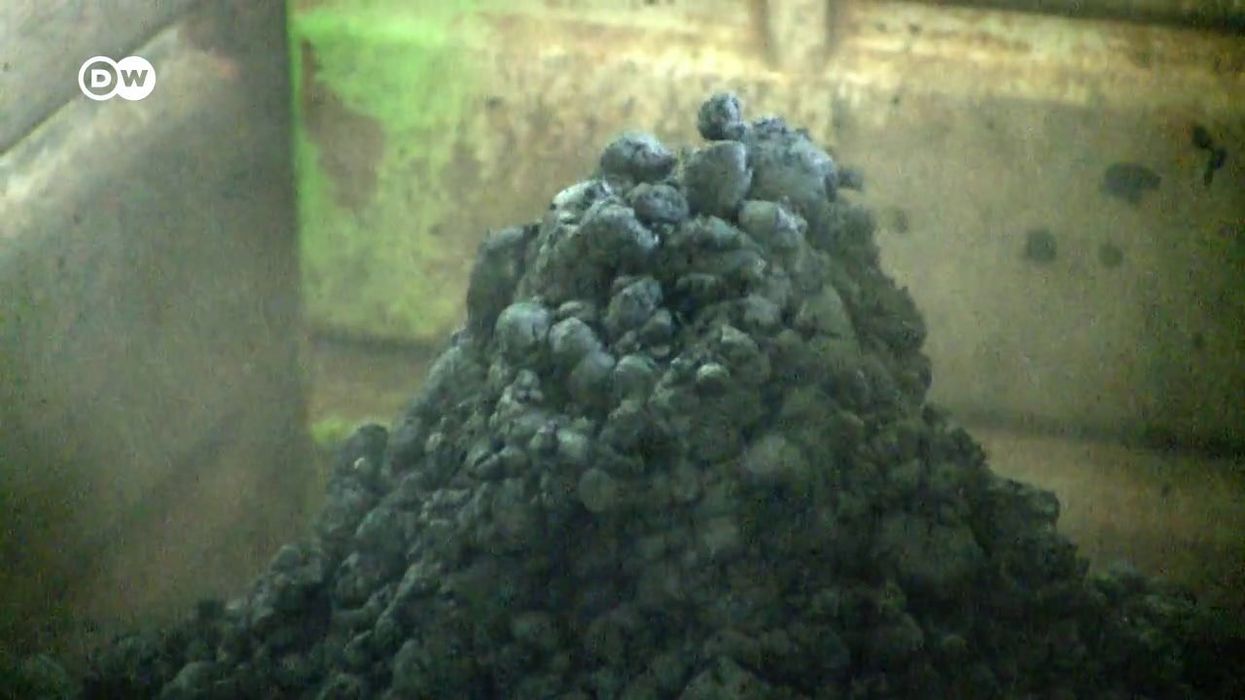Related video: From poop to power ― energy from waste
If you happen to be near the iconic Bondi Beach in Sydney, Australia, then you stand a chance of getting a photo taken with a ‘giant human poo’ which has been dumped on the shore to mark World Environment Day on Monday.
You may well think that plopping a poo on the coastline isn’t exactly a good look on a day designed to draw attention to protecting nature and the planet, but it’s actually made of rescued plastic from south east Asia, and intended to spread a pretty important message.
On a webpage explaining their publicity stunt, the New Zealand-based company Better Packaging said: “We’re kicking up a stink because humanity has a problem. We just can’t seem to stop making more and more new plastic, most of it never gets recycled and far too much of it ends up in our oceans.
“Basically, we treat plastic like s***.”
We see what you did there.
They continued: “This giant poop represents the amount of plastic that enters the ocean every 30 seconds. Scary huh.
Sign up to our free Indy100 weekly newsletter
“Most of it enters via land, and most of that from Asia. These regions don’t have any formal waste management or recycling infrastructure – plastic just gets thrown ‘away’, buried or burnt.
“Eventually, with the next monsoon rains, that plastic will get washed into a ditch, then a stream, a river, and then the ocean. We want to stop that happening!”
Hence the four-metre high turd, which is made mostly of recycled plastics and second-hand fishing nets, with a wooden tree structure at its base to “keep it upright”.
You wouldn’t want a floppy plop, after all (sorry).
\u201cToday is UN World Environment Day and this poo at Bondi Beach shows how much plastic goes into our oceans every 30 secs. We must all act to stop marine plastic pollution. For the sake of our children and the \ud83c\udf0e.\u201d— Paula Masselos (@Paula Masselos) 1685922359
\u201cTo mark World Environment Day, Better Packaging Co. have plopped a four-meter-high poo made of plastic pollution on Sydney\u2019s iconic Bondi Beach.\n\nhttps://t.co/YMhASWpaBK\u201d— B&T (@B&T) 1686013212
\u201cA 4m high poo made of plastic has been plopped on Bondi Beach. The installation is a visual representation of the sheer amount of plastic sh!t that\u2019s dumped in the world\u2019s oceans every 30 seconds. #WorldEnvironmentDay\u201d— ABCBoatLicence (@ABCBoatLicence) 1686013663
The artwork – if we can call it that – is titled "Plastic Pile of S***, 2023". Its unveiling follows a report by the United Nations’ Environment Programme (UNEP) in May which it said plastic pollution could fall by as much as 80 per cent by 2040 if both countries and companies make “deep” shifts in policies and markets through the use of “existing technologies”.
“The way we produce, use and dispose of plastics is polluting ecosystems, creating risks for human health and destabilising the climate,” said Inger Andersen, executive director of the UNEP.
Oh, and if you fancy witnessing the ‘excrement’ but are nowhere near Australia, then you might be in luck, as Better Packaging have said they’d “love to take it ‘on tour’” after going into temporary storage.
Have your say in our news democracy. Click the upvote icon at the top of the page to help raise this article through the indy100 rankings.













